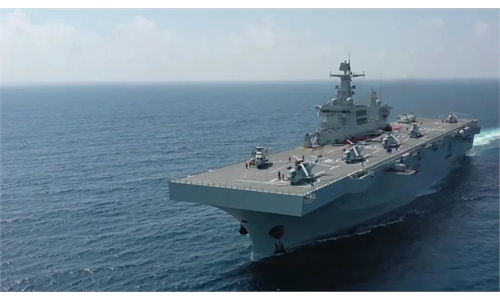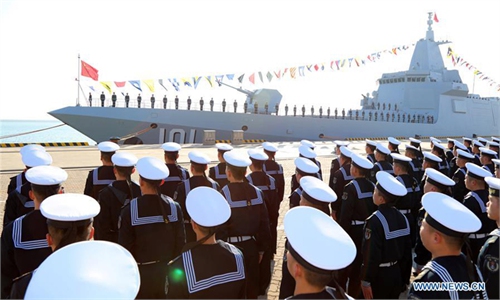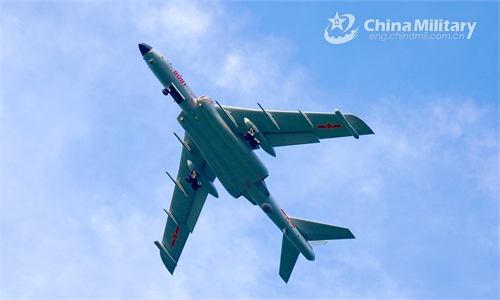India defense chief’s death shows flaws in Indian military, ‘deals heavy blow’ to its modernization
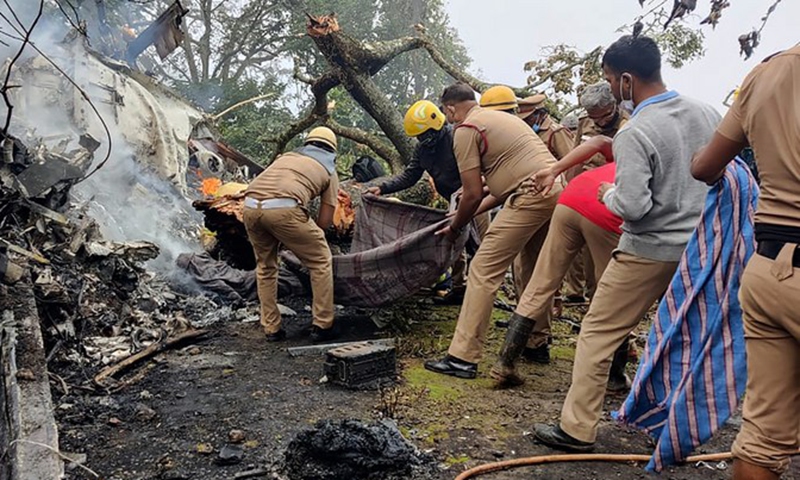
A view of site where an Indian Air Force helicopter crashed at Coonoor area of Nilgiris district, about 538 km southwest of Chennai, the capital city of India's Tamil Nadu state, Dec. 8, 2021.(Photo: Xinhua)
The death of India's defense chief in a helicopter crash on Wednesday not only exposed the Indian military's lack of discipline and combat preparedness, but also dealt a heavy blow to the country's military modernization that could linger for a long time, Chinese experts said on Thursday.But even with India's anti-China top defense figure gone, the country's aggressive posture toward China along the two countries' border regions is unlikely to change, analysts said.
A Mi-17V5 helicopter affiliated with the Indian Air Force on Wednesday crashed near southern India's Coonoor, leading to the death of 13 of the 14 people on board, including defense chief General Bipin Rawat, India TV News reported, citing a statement released by the Indian Air Force.
Indian media reports, like one by India Today, speculated that the cause could be the foggy weather, an entanglement in power lines, a mechanical failure or the wrong height at which the chopper began its descent.
All of these possible causes point to human factors rather than the Russian-originated helicopter, as the Mi-17 series choppers are widely used by other countries, analysts said.
Wei Dongxu, a Beijing-based military expert, told the Global Times on Thursday that the Mi-17V5 is an improved version of the Mi-17, and is equipped with more powerful engines and advanced electronic devices, making it supposedly more reliable.
However, the Indian military operates too many types of helicopters, including domestically developed ones, domestically produced ones with foreign technology transfer, ones imported from the US and ones imported from Russia, and this would cause problems in logistics support and maintenance, Wei said.
India is known to have a loose and undisciplined military culture, and Indian troops often do not follow standard operating procedures and regulations, another Chinese military expert told the Global Times on Thursday, requesting anonymity.
Causes of many previous accidents, including a fire on India's aircraft carrier in 2019 and an explosion on an Indian submarine in 2013, could all be traced to human error, observers said.
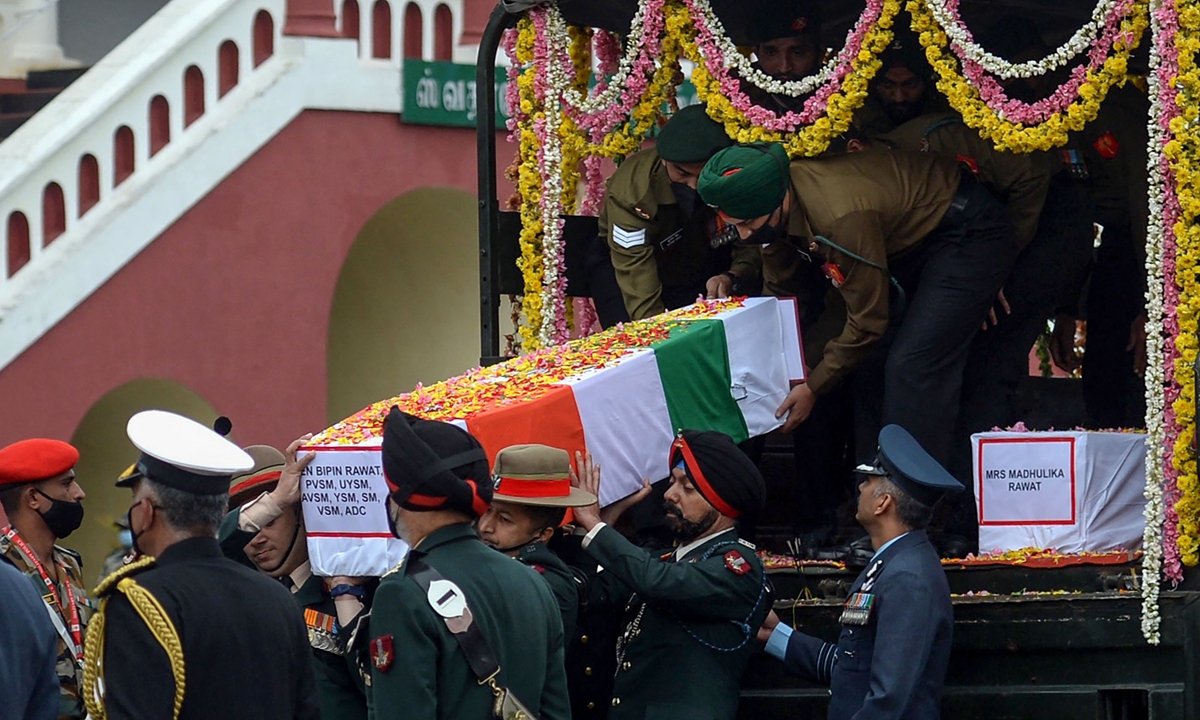
Army officers and soldiers carry the coffin of Indian Defense Chief General Bipin Rawat, who died a day earlier in a helicopter crash in Coonoor, during a military funeral at the Madras Regimental Center in Wellington, Tamil Nadu, on December 9, 2021. Photo:VCG
The latest helicopter accident could have been avoided if, for example, the flight was delayed until the weather improved, the pilot had flown more carefully or skillfully, or the ground maintenance crew took better care of the chopper, the anonymous expert said, noting that the accident again exposed the Indian military's lack of combat preparedness.This is a general problem across the whole Indian military, including Indian troops stationed along the China-India border regions, which keep making provocative moves but have no chance against the Chinese military if a real fight begins, the expert said.
After serving as army chief for a full three-year term, Rawat took over as India's first Chief of Defense Staff on December 31, 2019, the Hindustan Times reported.
Wei said Rawat's role was to mediate contradictions in India's Army, Navy and Air Force and integrate these forces in a move to modernize the military. His death will likely put the Indian military's modernization plan in disarray.
Just about a month ago, Rawat said at a summit that China is the biggest security threat facing India, the Times of India reported at the time.
While Rawat is considered by many as a top hawk in the China-India border issue, Chinese analysts do not expect his death to improve the current border situation.
"The China-India border issue is no longer just a military issue, but also a political one. What India does on the border issue depends largely on the policies of the Modi government. So India will not likely change its approach to the border issue just because of the accident, since the core is still China-India relations," Qian Feng, director of the research department at the National Strategy Institute at Tsinghua University, told the Global Times on Thursday.
Lan Jianxue, director of the Department for Asia-Pacific Studies at China Institute of International Studies, told the Global Times on Thursday that there will likely be no major adjustment on the border issue from India, as this is dictated by their strategic orientation toward China.
"Whether India changes or not, it will not change the fact that India's biggest enemy is its backwardness, not China," Lan stressed.
With the influential Rawat gone, the Indian government should realize that the undisciplined military could further get out of the hands of the government, making the border situation more unmanageable, Chinese experts warned.
Shortly after the accident, Indian scholar Brahma Chellaney, who has long been an anti-China hawk, said in a tweet on Wednesday that "Rawat's death has an eerie parallel with the helicopter crash in early 2020 that killed Taiwan's chief of general staff, Gen. Shen Yi-ming, and seven others, including two major generals."
Chellaney said that each helicopter crash eliminated a key figure in the defense against the Chinese mainland's "aggression," giving an impression that Beijing was behind the two accidents.
Anti-China forces like Chellaney are full of conspiracy theories, Qian said.
"Such conspiracy theories are also typical of the extreme anti-China people who lie through their teeth to divert all the domestic issues toward the China-India relations. He is notorious for being hysterically anti-China even in the Indian academic community," Qian said.
Chellaney later tweeted again that the strange parallel doesn't mean there was any connection between the two helicopter crashes or an outside hand.

